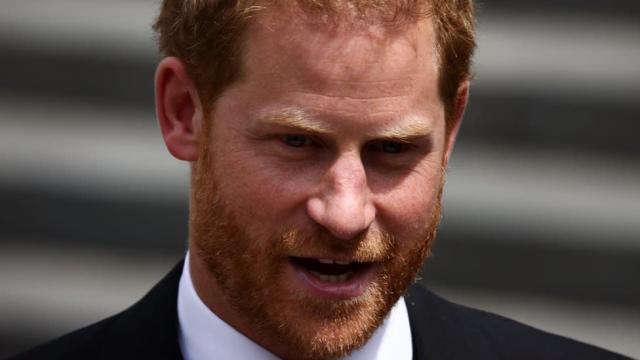By Sheila Mckenzie-
Prince Harry has won his bid for judicial review to bring a High Court challenge against the Home Office over his security arrangements in the UK.
The Duke Of Sussex challenged a February 2020 decision ruled they would not be afforded the “same degree” of protection while in the UK, but in a judgment on Friday, the High Court judge said the case could proceed, granting permission for part of Prince Harry’s claim to have a judicial review.
Prince Harry wants a review of the decision to not allow him to pay for police protection for himself and his family while visiting from the US.
Lawyers had argued that the Queen’s private secretary Sir Edward Young should not have been involved in the decision to deny him police protection in the UK due to the “significant tensions” between them.
Prince Harry’s legal team also argued that the security arrangements set out in a letter from Ravec, and their application when he visited the UK in June 2021, were invalid due to “procedural unfairness”.
They said this was because he was not given an opportunity to make “informed representations beforehand”.
His team also said he had not been aware that a top aide to the Queen, with whom he faced “significant tensions”, had played a role in the decision to downgrade his security.
Lawyers for the Home Office argued Ravec was entitled to reach the decision it did, which is that Harry’s security arrangements would be considered on a “case by case” basis, and that permission for a full judicial review should be refused.
The judge ruled parts of four of the five grounds Harry claimed were “arguable” , which means there will now be a full high court hearing to review the duke’s claim.
The judge said it was arguable that Ravec’s decisions were legally unreasonable and the duke should have been told about Ravec’s policy before its decision in February 2020.He added that it was arguable whether the duke “should have had the opportunity to make representations direct to Ravec, including the opportunity to comment on other matters Ravec considered”.
However, the judge denied permission for other parts of Harry’s claim, including that he should have been told who the members of Ravec were and that he did not have the chance to discuss the “appropriateness” of some people being involved in the committee.
The judge said: “In the course of submissions, it became apparent that, while the claimant may have had disagreements with persons who were Ravec committee members, there was no evidence at all to support a claim that any committee member had approached decisions with a closed mind, or that either decision was affected by bias.” He added: “Ultimately it was accepted for the claimant that no such case was, or could be, advanced.”
The judge added that the Home Office was “yet to have the chance to address in evidence” the process by which Ravec took its decision and this “should be considered at a final hearing”.




